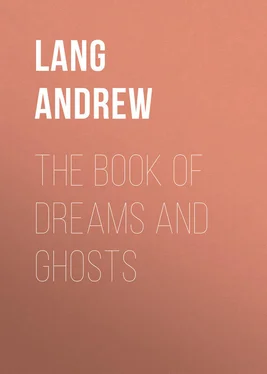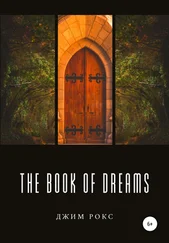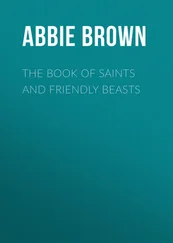Andrew Lang - The Book of Dreams and Ghosts
Здесь есть возможность читать онлайн «Andrew Lang - The Book of Dreams and Ghosts» — ознакомительный отрывок электронной книги совершенно бесплатно, а после прочтения отрывка купить полную версию. В некоторых случаях можно слушать аудио, скачать через торрент в формате fb2 и присутствует краткое содержание. Жанр: foreign_antique, foreign_prose, на английском языке. Описание произведения, (предисловие) а так же отзывы посетителей доступны на портале библиотеки ЛибКат.
- Название:The Book of Dreams and Ghosts
- Автор:
- Жанр:
- Год:неизвестен
- ISBN:нет данных
- Рейтинг книги:4 / 5. Голосов: 1
-
Избранное:Добавить в избранное
- Отзывы:
-
Ваша оценка:
- 80
- 1
- 2
- 3
- 4
- 5
The Book of Dreams and Ghosts: краткое содержание, описание и аннотация
Предлагаем к чтению аннотацию, описание, краткое содержание или предисловие (зависит от того, что написал сам автор книги «The Book of Dreams and Ghosts»). Если вы не нашли необходимую информацию о книге — напишите в комментариях, мы постараемся отыскать её.
The Book of Dreams and Ghosts — читать онлайн ознакомительный отрывок
Ниже представлен текст книги, разбитый по страницам. Система сохранения места последней прочитанной страницы, позволяет с удобством читать онлайн бесплатно книгу «The Book of Dreams and Ghosts», без необходимости каждый раз заново искать на чём Вы остановились. Поставьте закладку, и сможете в любой момент перейти на страницу, на которой закончили чтение.
Интервал:
Закладка:
Thus the clothes of ghosts, their properties, and their actions affecting physical objects, are not more difficult to explain than a naked ghost would be, they are all the “stuff that dreams are made of”. But occasionally things are carried to a great pitch, as when a ghost drives off in a ghostly dogcart, with a ghostly horse, whip and harness. Of this complicated kind we give two examples; the first reckons as a “subjective,” the second as a veracious hallucination.
THE OLD FAMILY COACH
A distinguished and accomplished country gentleman and politician, of scientific tastes, was riding in the New Forest, some twelve miles from the place where he was residing. In a grassy glade he discovered that he did not very clearly know his way to a country town which he intended to visit. At this moment, on the other side of some bushes a carriage drove along, and then came into clear view where there was a gap in the bushes. Mr. Hyndford saw it perfectly distinctly; it was a slightly antiquated family carriage, the sides were in that imitation of wicker work on green panel which was once so common. The coachman was a respectable family servant, he drove two horses: two old ladies were in the carriage, one of them wore a hat, the other a bonnet. They passed, and then Mr. Hyndford, going through the gap in the bushes, rode after them to ask his way. There was no carriage in sight, the avenue ended in a cul-de-sac of tangled brake, and there were no traces of wheels on the grass. Mr. Hyndford rode back to his original point of view, and looked for any object which could suggest the illusion of one old-fashioned carriage, one coachman, two horses and two elderly ladies, one in a hat and one in a bonnet. He looked in vain – and that is all!
Nobody in his senses would call this appearance a ghostly one. The name, however, would be applied to the following tale of
RIDING HOME FROM MESS
In 1854, General Barter, C.B., was a subaltern in the 75th Regiment, and was doing duty at the hill station of Murree in the Punjaub. He lived in a house built recently by a Lieutenant B., who died, as researches at the War Office prove, at Peshawur on 2nd January, 1854. The house was on a spur of the hill, three or four hundred yards under the only road, with which it communicated by a “bridle path,” never used by horsemen. That path ended in a precipice; a footpath led into the bridle path from Mr. Barter’s house.
One evening Mr. Barter had a visit from a Mr. and Mrs. Deane, who stayed till near eleven o’clock. There was a full moon, and Mr. Barter walked to the bridle path with his friends, who climbed it to join the road. He loitered with two dogs, smoking a cigar, and just as he turned to go home, he heard a horse’s hoofs coming down the bridle path. At a bend of the path a tall hat came into view, then round the corner, the wearer of the hat, who rode a pony and was attended by two native grooms. “At this time the two dogs came, and crouching at my side, gave low frightened whimpers. The moon was at the full, a tropical moon, so bright that you could see to read a newspaper by its light, and I saw the party above me advance as plainly as if it were noon-day; they were above me some eight or ten feet on the bridle road… On the party came… and now I had better describe them. The rider was in full dinner dress, with white waistcoat and a tall chimney-pot hat, and he sat on a powerful hill pony (dark-brown, with black mane and tail) in a listless sort of way, the reins hanging loosely from both hands.” Grooms led the pony and supported the rider. Mr. Barter, knowing that there was no place they could go to but his own house, cried “ Quon hai
Конец ознакомительного фрагмента.
Текст предоставлен ООО «ЛитРес».
Прочитайте эту книгу целиком, купив полную легальную версию на ЛитРес.
Безопасно оплатить книгу можно банковской картой Visa, MasterCard, Maestro, со счета мобильного телефона, с платежного терминала, в салоне МТС или Связной, через PayPal, WebMoney, Яндекс.Деньги, QIWI Кошелек, бонусными картами или другим удобным Вам способом.
1
Principles of Psychology , vol. ii., p. 115. By Professor William James, Harvard College, Macmillan’s, London, 1890. The physical processes believed to be involved, are described on pp. 123, 124 of the same work.
2
Op. cit ., ii., 130.
3
Story received from Miss – ; confirmed on inquiry by Drumquaigh.
4
Phantasms of the Living , ii., 382.
5
To “send” a dream the old Egyptians wrote it out and made a cat swallow it!
6
See “Queen Mary’s Jewels” in chapter ii.
7
Narrated by Mrs. Herbert.
8
Story confirmed by Mr. A.
9
This child had a more curious experience. Her nurse was very ill, and of course did not sleep in the nursery. One morning the little girl said, “Macpherson is better, I saw her come in last night with a candle in her hand. She just stooped over me and then went to Tom” (a younger brother) “and kissed him in his sleep.” Macpherson had died in the night, and her attendants, of course, protested ignorance of her having left her deathbed.
10
Story received from Lady X. See another good case in Proceedings of the Psychical Society , vol. xi., 1895, p. 397. In this case, however, the finder was not nearer than forty rods to the person who lost a watch in long grass. He assisted in the search, however, and may have seen the watch unconsciously, in a moment of absence of mind. Many other cases in Proceedings of S.P.R.
11
Story received in a letter from the dreamer.
12
Augustine. In Library of the Fathers, XVII. Short Treatises , pp. 530-531.
13
St. Augustine, De Cura pro Mortuis.
14
The professor is not sure whether he spoke English or German.
15
From Some Account of the Conversion of the late William Hone , supplied by some friend of W. H. to compiler. Name not given.
16
What is now called “mental telegraphy” or “telepathy” is quite an old idea. Bacon calls it “sympathy” between two distant minds, sympathy so strong that one communicates with the other without using the recognised channels of the senses. Izaak Walton explains in the same way Dr. Donne’s vision, in Paris, of his wife and dead child. “If two lutes are strung to an exact harmony, and one is struck, the other sounds,” argues Walton. Two minds may be as harmoniously attuned and communicate each with each. Of course, in the case of the lutes there are actual vibrations, physical facts. But we know nothing of vibrations in the brain which can traverse space to another brain.
Many experiments have been made in consciously transferring thoughts or emotions from one mind to another. These are very liable to be vitiated by bad observation, collusion and other causes. Meanwhile, intercommunication between mind and mind without the aid of the recognised senses – a supposed process of “telepathy” – is a current explanation of the dreams in which knowledge is obtained that exists in the mind of another person, and of the delusion by virtue of which one person sees another who is perhaps dying, or in some other crisis, at a distance. The idea is popular. A poor Highland woman wrote to her son in Glasgow: “Don’t be thinking too much of us, or I shall be seeing you some evening in the byre”. This is a simple expression of the hypothesis of “telepathy” or “mental telegraphy”.
Читать дальшеИнтервал:
Закладка:
Похожие книги на «The Book of Dreams and Ghosts»
Представляем Вашему вниманию похожие книги на «The Book of Dreams and Ghosts» списком для выбора. Мы отобрали схожую по названию и смыслу литературу в надежде предоставить читателям больше вариантов отыскать новые, интересные, ещё непрочитанные произведения.
Обсуждение, отзывы о книге «The Book of Dreams and Ghosts» и просто собственные мнения читателей. Оставьте ваши комментарии, напишите, что Вы думаете о произведении, его смысле или главных героях. Укажите что конкретно понравилось, а что нет, и почему Вы так считаете.












